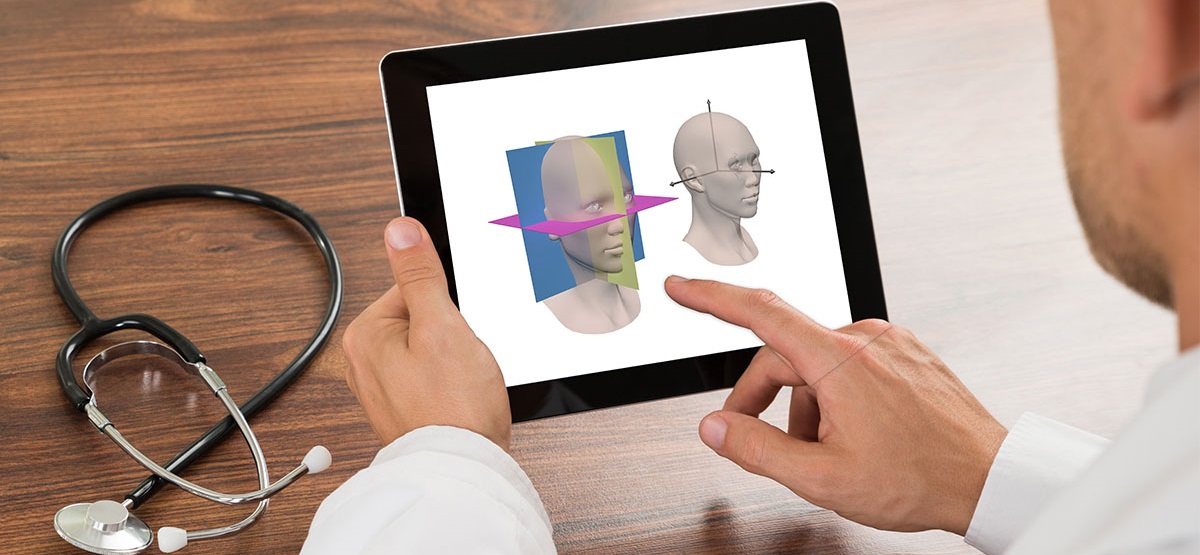


Restorative Medicine
Technology Transforms Facial Surgery

Novel medical technology for craniomaxillofacial surgery receives FDA clearance for market
AnatomicAligner uses modern computer graphics and modeling technologies to simulate an entire operation in a computer.
In March 2020 Houston Methodist reached a major milestone, receiving U.S. Food and Drug Administration (FDA) 510(k) clearance to market the AnatomicAligner, a novel, comprehensive software program used to improve planning for craniomaxillofacial (CMF) surgeries. With its first propriety technology directly FDA-cleared, Houston Methodist now joins an elite group of academic medical centers with an approved medical technology ready for market access.
The AnatomicAligner System for Surgical Planning was funded in part by Houston Methodist’s Translational Research Initiative (TRI), a dedicated $30 million product development fund that helps multiple promising medical technologies navigate the translational medicine pipeline. In addition to planning surgeries, the AnatomicAligner is used to ensure unsurpassed precision and effectiveness during procedures, subsequently aiming to improve the treatment and recovery of patients who require CMF reconstructions.
The FDA has cleared AnatomicAligner to be used for pre-operative simulation of jaw surgery treatment options, based on imaging information from multiple medical imaging modalities, such as computed tomography, cone-beam computed tomography or 3D surface scanner, in patients who have reached skeletal and dental maturity. CMF surgery involves the correction of congenital and acquired deformities of the skull and face. Due to the complex nature of the craniofacial skeleton, corrective surgeries require extensive presurgical planning. Without innovation in traditional planning methods, many CMF surgeries result in unwanted surgical outcomes and additional procedures.
Developed by James Xia, MD, PhD, professor of oral and maxillofacial surgery, and Jaime Gateno, DDS, MD, chair of the Department of Oral & Maxillofacial Surgery and professor of oral and maxillofacial surgery, AnatomicAligner uses modern computer graphics and modeling technologies to simulate an entire operation in a computer. The goal is to enable surgeons to more quickly and accurately develop a surgical plan and fabricate surgical templates that can be used to transfer the computerized surgical plan to the patient at the time of CMF surgery. AnatomicAligner may also be used in orthopedic or other surgeries. In addition to TRI funding, Xia and Gateno also received nearly $10 million in funding from the National Institute of Craniofacial and Dental Research to develop the methodology and the AnatomicAligner software system.
The Houston Methodist Academic Institute delivers new scientific discoveries to patients as rapidly as possible through the full cycle of a cure, from bench research, to prototyping and production, to clinical trials and FDA approval. Houston Methodist research support teams focus on achieving market adoption and compliance with safety, laws and regulations to give patients quick access to safe and effective therapies.
Laura Niles, April 2020








